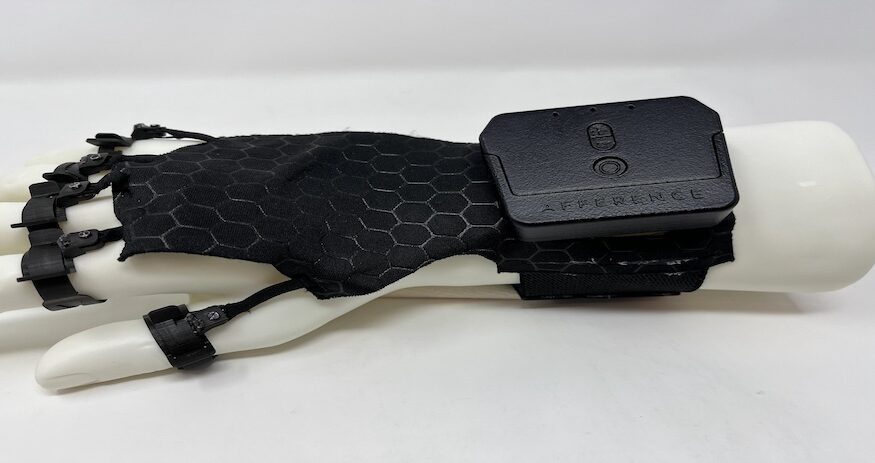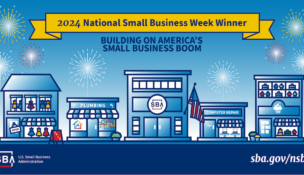Tech Startup: Afference’s Touch-Sensitive Prosthetics
Afference has implanted devices in amputee patients “that allow people who use prosthetic hands to feel the world again."
Eric Peterson //April 12, 2024//

Photo courtesy of Afference.

Photo courtesy of Afference.
Tech Startup: Afference’s Touch-Sensitive Prosthetics
Afference has implanted devices in amputee patients “that allow people who use prosthetic hands to feel the world again."
Eric Peterson //April 12, 2024//
Afference
WHERE: Boulder, CO
WEBSITE: www.afference.io
FOUNDED: 2022
Initial lightbulb
CEO Jacob Segil collaborated on Afference’s underlying technology with co-founder and CSO Dustin Tyler, a professor at Case Western Reserve University in Ohio. “We’ve been studying how to restore the sense of touch for people with amputation,” Segil says.
To that end, Tyler has implanted devices in amputee patients “that cuffs the nerve and it creates sensations in the brain of things that aren’t there,” Segil says. “It’s allowed these people to use prosthetic hands to feel the world again.”
That technology has won accolades worldwide and garnered coverage from “60 Minutes” and National Geographic. “What’s happened recently is that we were able to show how to do this with a wearable … you don’t want to go through a surgery in order to feel artificial sensations,” Segil says. “We put rings on your fingers, and we can use the same techniques to create artificial sensations in your hand.”
READ: Tech Startup — Skyhook Solar’s Solar-Powered Charging Stations for E-bikes and Electric Cars
In a nutshell
Afference aims to take its wearable neural interface, branded the Phantom, to the gaming and virtual reality markets as the concept of spatial computing takes hold.
Segil says the Phantom tackles “a similar but different problem” to the technology’s use in prosthetics. “In the prosthetic space, there’s a physical object you’re trying to manipulate … but you don’t have a hand,” he explains. “And then in the virtual world, you have a hand, but there’s no object.”
The common thread is neural haptics.
“What you’re doing is creating new information in the nervous system and you’re doing it in a way that the brain feels things that aren’t there,” Segil says. “We’re using electricity to create new information in the nerves that are running from your fingertip down to your brain.”
For example, a user could press a virtual button floating in space. “When my virtual hand touches that virtual button, I send new information in and I feel a click; it feels like something’s there when there isn’t anything.”
Not only can the Phantom replicate the feel of physical objects, it can approximate the feeling of heat and other sensations. “It feels like this sort of buzzing and tingling,” Segil says. “We can vary it in terms of its intensity and its temporal properties.”
The first public demonstration of the wearable was at the Consumer Electronics Show in January 2024, where it won the “Best of Innovation” award. Afference is now working with early commercial partners to further hone the technology for applications in gaming and enterprise training.
Afference is assembling the first Phantoms in-house, but Segil says the company will need to find a manufacturing partner to scale in 2025.
The market
Segil sees spatial computing nearing an inflection point, not unlike personal computing in 1984 or touchscreen interfaces in 2007. “It’s only in the past 18 to 24 months where you could use your hands to touch digital interfaces,” he says. “We’re seeing high growth and lots of investment from the big tech players. We think we’re well-timed and well-positioned to support this growing industry.”
Financing
Afference raised a pre-seed round of $1.5 million led by Denver-based Konvoy Ventures in late 2022. The company also won a $250,000 Advanced Industries grant from the Colorado Office of Economic Development and International Trade in late 2023.
“When we were looking at the XR [extended reality] space, there was a clear trend that we’re moving away from controllers,” says Taylor Hurst, Konvoy principal. “When we met them and saw their vision around neurostimulation, it was clear: This is how your body works. Your body feels things through electrical signals within your nervous system. And so when we heard they were doing that, it was kind of a no-brainer for us. If there’s going to be a haptic solution that becomes widely adopted, this is the way it’ll have to be done because it is as close to reality as possible.”
g
























